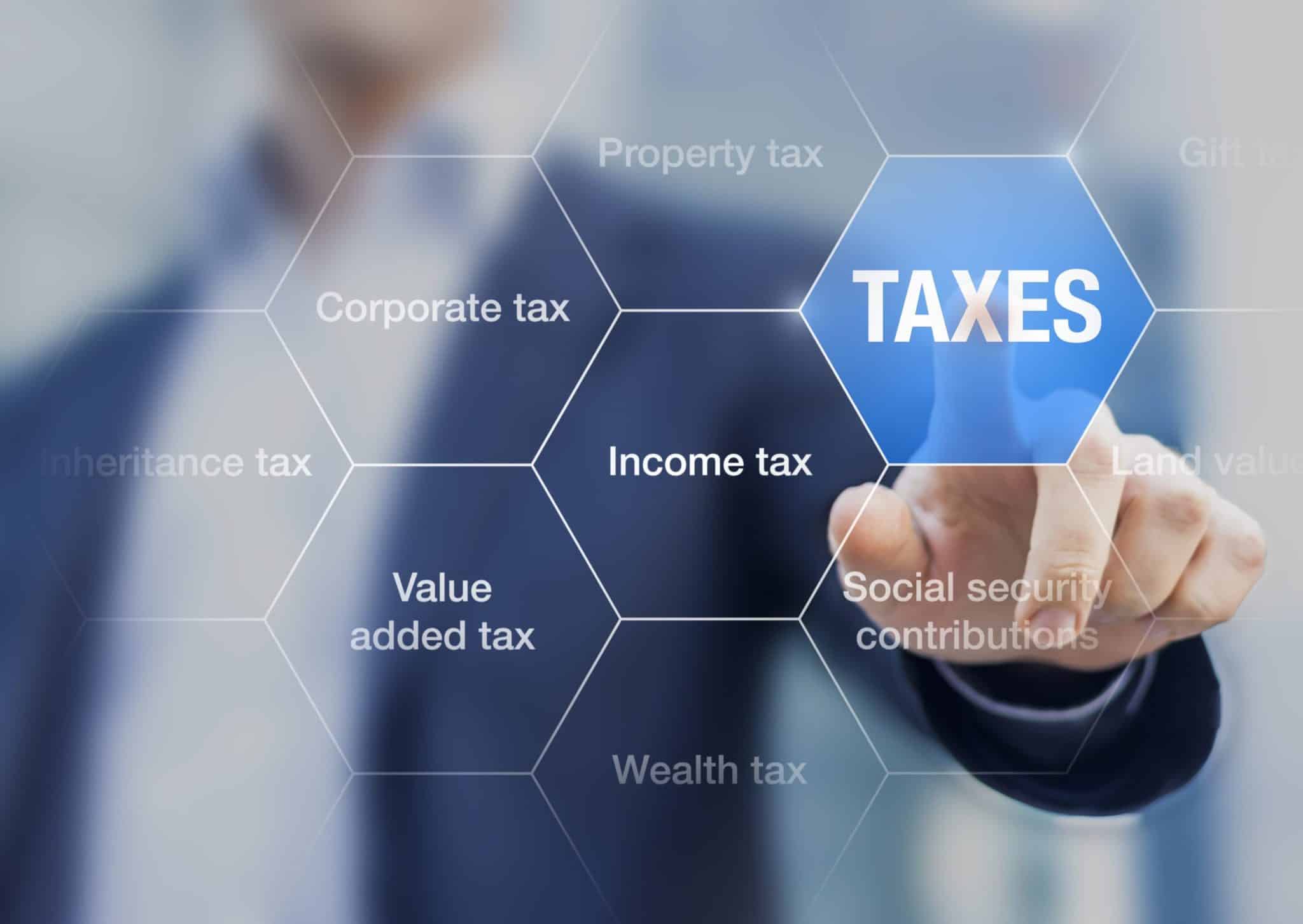Are you a small business owner looking for help navigating the complex world of taxes? Do you need advice on filing taxes and understanding the latest tax laws?
Filing small business taxes can be daunting for small business owners and entrepreneurs. However, it doesn’t have to be. Knowing how to correctly file taxes is essential for any small business, as it can make all the difference between success and failure.
This guide is designed to help you understand and manage your taxes in 2023, so you can focus on growing your business. Let’s get started!
Types of Small Business Taxes
Small business taxes can be complicated and vary greatly depending on the type of business you are running. When it comes to taxes for small businesses, there are many different types to be aware of. That is why small business owners need to know the various taxes and how they may impact their bottom line.
The main types of taxes that small businesses should consider include the following:
- Payroll Taxes
- Property Taxes
- Income Tax
- Sales Tax
- Self Employment Taxes
Payroll Taxes
Payroll taxes are taxes imposed on an employee’s earnings from employment and paid by the employer. These taxes are calculated as a percentage of the employee’s salary, bonus, or other compensation.
Payroll taxes generally include the following:
- Social Security
- Medicare
- Unemployment Insurance
- State Disability Insurance
Social Security and Medicare taxes are known as FICA (Federal Insurance Contributions Act) taxes and make up the bulk of payroll tax collection for the federal government. Employers are also responsible for withholding income taxes from their employee’s paychecks for submission to the Internal Revenue Service (IRS).
The payroll tax system can be complicated, with various forms employers must complete and submit to maintain compliance with federal regulations. Employers must pay federal payroll taxes at certain times throughout the year, depending on how many employees they have and how large their business is.
Some states also require businesses to pay state payroll taxes periodically, and employers in these states may need to file multiple tax forms each year to comply with all applicable laws. In addition, employers must also report any changes in an employee’s wages or benefits to the IRS annually.
Property Taxes
Property taxes are a form of taxation charged against real estate and tangible personal property based on ownership. This tax is based on the value of the property in question. It can help pay for local services like public safety, education, parks, and infrastructure improvements.
These taxes vary greatly from state to state, even within a single county. However, they are calculated by multiplying the property’s assessed value with the applicable tax rate set by local authorities.
Property tax assessments are reassessed periodically to ensure that tax authorities collect revenues at fair market values. It’s helpful for owners to keep records of any upgrades or improvements to their properties to ensure accuracy when assessing taxes since these may affect the taxable value. It’s also important for owners to stay current on any changes in local regulations which could potentially impact their property tax bills.
Income Tax
Income taxes are a form of taxation imposed by the government on individuals and businesses that generate income. These taxes are calculated based on the total amount of money earned in a given year, minus any deductions or adjustments that may apply.
They usually include a progressive system of tax rates, meaning that higher incomes pay higher tax rates. Income taxes can fund public works and services, such as roads, schools, and retirement benefits for seniors.

Additionally, these taxes can also be used to provide incentives for businesses to create jobs and invest in their communities. Income taxes can vary from state to state, with some offering tax credits or deductions to lower-income earners.
However, certain types of income may be taxed at different rates than others, such as capital gains or self-employment income. Individuals and businesses must accurately report their earnings each year and pay the appropriate taxes due within the given time frame to ensure compliance with all applicable laws.
Sales Tax
Sales taxes are a type of tax that the government collects on retail purchases. The amount of sales tax varies from state to state. In some states, local governments also collect sales taxes in addition to the state rate.
Depending on applicable laws, this tax is collected at the point of sale and remitted to the government by the seller or buyer. As with most other forms of taxation, sales taxes apply only to tangible products such as groceries and clothing but not services.
However, depending on your jurisdiction, some services may be subject to sales tax, such as amusement park admission fees or sporting event tickets. Businesses that collect sales taxes must keep careful records and file their returns regularly.
Additionally, businesses must calculate how much sales tax they owe and when it is due based on their own sales history and the applicable rules in their state. Failure to comply with these regulations can result in stiff penalties, including fines or imprisonment.
Self Employment Taxes
Self-employment taxes refer to the taxes that self-employed individuals must pay to the Internal Revenue Service (IRS). These taxes include Social Security and Medicare contributions, also known as FICA taxes.
As a self-employed individual, you must pay a combined rate of 15.3% in self-employment tax on any net earnings from your business, including income from contract work or freelancing. The 15.3% rate is divided into 12.4% for Social Security and 2.9% for Medicare taxes.
Self-employed individuals must also pay self-employment tax quarterly, a rate calculated based on the net earnings from their business activities or freelancing jobs. For most, this involves estimating your total income, subtracting deductions like expenses related to business operations or contributions to retirement funds, and then calculating your net earnings per quarter. You can learn how to avoid self-employed tax penalties here.
How Much Will You Pay In Taxes in 2023?
The amount of small business taxes you will pay in 2023 depends on where your small business is located, the kind of business entity, and the type of income it generates. Depending on the type and size of your business and how it is incorporated, you may need to pay a range of taxes.
C-Corporation Taxes
C-Corp taxes are federal income taxes imposed on certain types of businesses. Unlike other business entities, C-Corps are taxed at the corporate level. Then shareholders may be subject to additional taxation when they receive dividends or draw profits from their companies.
Generally, C-Corps must pay higher rates than other business entities, such as sole proprietorships and limited liability companies (LLCs). These businesses also have additional paperwork requirements, including filing annual corporate tax returns.
C-Corp taxes can be complex because they involve multiple levels of taxation. If a company makes a profit, it pays taxes at its rate. However, if any shareholders receive dividends or withdraw profits from the company, those individuals may be subject to an additional tax obligation.
Depending on its size and structure, a C-Corp may also qualify for certain deductions and credits that can help reduce its taxable income. For example, it might be able to deduct health insurance premiums paid for its employees from its taxable income, or it could qualify for credits related to research & development activities or investments in renewable energy technology.
Additionally, businesses classified as C-Corps must pay estimated taxes quarterly throughout the year instead of waiting until the year’s end, as most other entities do. This means that taxes must be paid four times during the year to avoid penalties or interest charges for underpayment.
Pass-Through Entity Taxes
Pass-through entity taxes are a form of taxation applied to businesses operating with single or multiple owners. This taxation allows business profits, losses, deductions, and credits to pass from the business entity to the owners.
The resulting income is then reported on the owner’s individual tax returns and taxed at their individual income tax rate. Pass-through entity taxes can benefit those who own businesses, allowing them to pay taxes on their personal income at a lower rate than corporate profits.
The four types of pass-through entities are:
- Sole Proprietorship
- Partnership (Limited and Limited Liability)
- Limited Liability Company (LLC)
- S-Corporation
Let’s take a closer look at each of these entities!
Sole Proprietorship
Sole proprietorship taxes are an important part of running a business. As the sole owner of your business, you are responsible for keeping accurate records and filing tax returns each year. To properly file taxes as a sole proprietor, you should always keep up-to-date records of all transactions and use an accredited accountant to ensure accuracy when filing returns.
The primary difference between a sole proprietorship and other businesses is that the business and individual are treated as one entity for tax purposes. This means that all profits or losses from the business pass through to the individual, who must report them on their income tax return.
Partnership (Limited and Limited Liability)
Partnerships are a unique business structure in which individuals share ownership and profits of an organization. These organizations can range from small businesses to large corporations.
However, for tax purposes, partnerships have two types: limited and limited liability. Limited and limited liability partnerships are two different types of partnerships that must pay different taxes.
Limited partnerships designate one partner as a general partner liable for all debts, while the other partners are limited partners who do not have any liability for the business’s debts beyond their original investment. On the other hand, limited liability partnerships protect all partners from personal liability for any debts incurred by the partnership.
These two forms of partnership require special tax filing considerations regarding reporting income and paying applicable taxes. Every partner must report their portion of income or losses to the Internal Revenue Service (IRS) on their personal tax returns, regardless of whether they receive distributions.
Limited Liability Company (LLC)
Limited Liability Companies (LLCs) are a popular business structure for small businesses. LLCs offer owners liability protection from debts, legal issues, and tax benefits. LLC taxes work differently than taxes for other business structures or individuals, as LLCs do not pay corporate income taxes.
Instead, all profits and losses flow to the individual members of the LLC, who then report them on their tax returns. Each member of an LLC must report the company’s profits and losses on their tax return and pays tax according to their tax rate.

The LLC is required to file an informational return with the Internal Revenue Service (IRS) each year, but this only provides details about the company’s financial information, and no taxes are paid at this stage.
Depending on the number of members in an LLC, the IRS may require the LLC to file either Form 1065 or Form 8832. In addition to filing federal income taxes, members of an LLC may also be required to pay self-employment taxes such as Social Security and Medicare.
S Corporation
S Corporation taxes can be quite complex, and small business owners need to understand the rules and regulations that apply. Under IRS rules, an S Corporation is a legal entity set up under state law but is then exempted from federal taxation.
This corporation pays all tax liabilities through shareholder dividends rather than corporate income taxes. As a result, shareholders are taxed on their share of the profits or losses as if they were sole proprietors.
How Will You Be Taxed as a Small Business
f you’re a small business owner, the taxation process can be overwhelming. As with any other type of business, you will need to pay taxes to the federal, state, and local governments. Taxes are due at different times throughout the year and are based on your revenue and profits.
Percentage of Wages
Regarding small business taxes, the percentage of wages is a key factor to consider. The wage percentage works by having employers take the gross wages they pay their employees and subtract any deductions from them.
This will result in the amount of taxes that must be paid out. The employer then pays these taxes on behalf of their employees, who are responsible for paying a certain percentage of their wages in taxes. Employers should also stay aware of any changes in tax rates or laws that may affect their employees’ wage percentages.
Depending on the region, this percentage can range from as low as 0% to as high as 39%. Employers need to stay vigilant about calculating the correct wage percentages because if too much is deducted from an employee’s paycheck, there could be government or local tax agencies’ penalties.
Percentage of Gross Sales
When preparing for small business taxes, it is important to understand the percentage of gross sales reported on your taxes. Companies must report all customer income during the tax year, including any discounts or credits you may have given them.
This includes any money received in cash, checks, or other forms of payment, including credit card charges. In addition, other income sources, such as interest earned on bank accounts and any non-cash receipts like barter transactions, should also be included in the calculation of gross sales.
However, businesses need to subtract any available deductions from their total gross sales figure when determining the amount of taxable income for the year. Depending on the type of business activity conducted during the year, additional deductions may be available to help reduce your taxable income.
Common business deductions include expenses related to running the business, such as:
- Rent Payments
- Advertising Costs
- Salaries for Employees
Percentage of Income
In addition to a percentage of wages and gross sales, small business owners are also required to pay taxes on a percentage of their net income. This is calculated by subtracting all allowable expenses from the total revenue earned during the year. The higher the business’s income, the higher the taxes must be paid.
Small business owners must also be aware of any due state or local taxes. Depending on the size and type of small business, different taxes may be imposed by each government entity. It is important to check with your local tax authorities to make sure you are up-to-date on all applicable small business taxes.
Taxes on Property Value
Property taxes are a type of levy imposed on the value of land and/or buildings owned by businesses. This tax is calculated as a percentage of the property’s assessed value. It can help fund local schools, public safety, and other services your local government or state provides.
These taxes are important in providing revenue to fund essential government services. Still, they can also be an onerous financial burden for small business owners who do not have access to large amounts of capital. When property values rise, so too do property taxes, putting a strain on small businesses that may not be able to keep up with the increased costs.

Business owners should be aware that failure to pay these taxes can result in severe consequences ranging from liens placed against their property to foreclosure if they become delinquent on payments. Small business owners need to understand their local laws regarding taxation and take steps to ensure they are compliant with all applicable regulations.
How to File Small Business Taxes
Filing small business taxes can be a daunting process. It is important to keep good records throughout the year, prepare all the documentation ahead of time, and determine which forms are necessary to submit to make things easier.
Collect and Save All Receipts
Business owners should keep receipts, as these can be used to calculate the total amount of deductions taken during a given tax period.
Receipts can come in the form of:
- Invoices
- Bank statements
- Credit card statements
- Physical receipts from purchases
Keeping accurate records of each receipt will help track expenses for the company. Additionally, it is important to file these documents correctly so they can be accessed when filing taxes.
Download Bank And Credit Card Statements
Downloading bank and credit card statements is important in managing your small business finances and taxes. Not only does it help you keep accurate records for tax purposes, but it also allows you to monitor available funds, review spending trends, and detect any fraudulent activity that might be occurring.
By downloading this information, it can help you keep track of all your transactions and ensure that everything is accounted for when filing taxes. With the right software, you can easily download these statements quickly, ensuring that you have the most up-to-date information when needed.
Fill Out All Required Forms
Once your small business records are in order, it’s time to start filling out the necessary tax forms. Depending on the size and complexity of your small business, there could be multiple forms that need to be filled out.
For example, if you have employees or subcontractors working for you, additional documents such as W-2s and 1099s must be filled out and submitted. Additionally, you may need to file local or state taxes, depending on your small business’s location.
Send Fillings to Proper State Authorities
After all the forms are filled out, small business owners must submit them to the appropriate state authorities. This may involve mailing in forms or sending them electronically through a website like e-file.
It is important to ensure that the files are sent correctly and on time because failure to do so can result in fines and penalties. Additionally, small business owners should keep copies of all the documents they send if they need to refer back to them at any point.
Best Small Business Tax Software
Hiring a professional to help you with your small business taxes is smart. This can save you time, money, and hassle when filing taxes. Plus, they are experienced with the tax process and can advise on the best ways to file, and they can help identify potential deductions or credits that may be available to you. Let’s go over some of the best tax software for small businesses.

QuickBooks
QuickBooks is one of the leading small business tax software options available. It provides business owners with powerful tools to help them file taxes quickly and accurately, and efficiently manage their finances.
QuickBooks offers various services, from basic tax filing to more complex financial tasks like creating invoices and tracking sales. Its intuitive user interface makes it easy for users to navigate, making it ideal for those new to filing taxes or managing their financials. Additionally, the software includes several features, such as time tracking, custom reporting capabilities, and built-in integrations with third-party applications.
TurboTax
TurboTax is a comprehensive, user-friendly tax software that offers a comprehensive package of features to help small business owners manage their taxes. From start-up to running an established business, TurboTax can make filing easier and more efficient.
It also has online tools specifically designed for small businesses, such as an employee payroll deduction calculator and an income tax expense estimator. The software makes it simple for users to track their business expenses through its automated expense tracking system.
H&R Block
H&R Block is one of the most popular small business tax software solutions today. This all-in-one platform is designed to help businesses maximize their tax savings and provides everything they need to manage taxes quickly, accurately, and professionally.
This cloud-based solution offers integrated features that are easy to use and streamline business processes. Additionally, H&R Block provides an audit assistance guarantee which promises free audit representation from a professional if needed.
The company also offers financial services, such as:
- Payroll
- Invoicing
- Bookkeeping
Small business owners can make sure their taxes are filed accurately and on time by utilizing small business tax software. These tools will help small businesses save time and money while ensuring compliance with the ever-changing tax laws.
Final Thoughts on Small Business Taxes
Small business taxes can be complicated and overwhelming, but they don’t have to be. By following our small business taxes for beginners guide, you can gain confidence in your small business taxes and ensure that you comply with the law.
Remember, it’s always wise to consult a tax professional if you have any questions or find yourself lost in the small business tax jungle. With their help, small business owners can rest assured that they are paying the correct taxes and can focus more on growing their small businesses.
Are you a small business owner? Do you have any questions about small business taxes for beginners? Let us know in the comments below!

